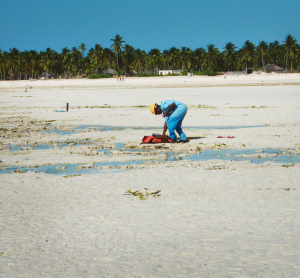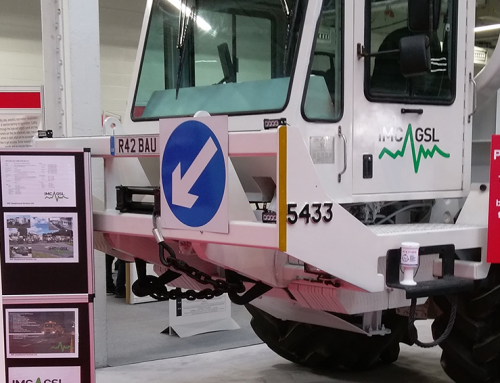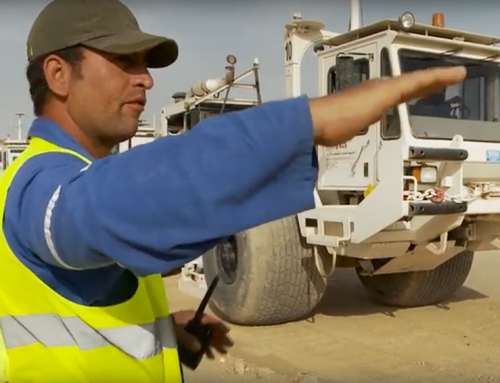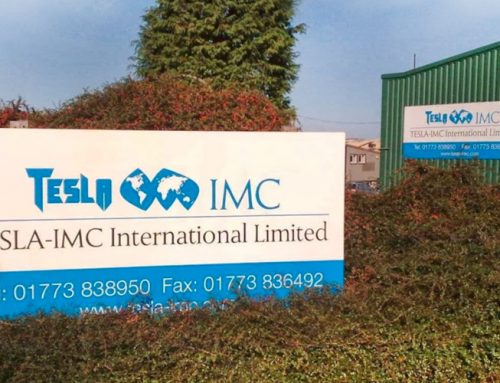 While countries such as Tanzania, Kenya and Mozambique are fast on their way to becoming established centres of economic prosperity, in part due to the extraction and utilisation of their considerable natural resources, the east of Africa remains home to a great many unexplored areas. It is because of the success of national and international companies in the region that these unchartered swaths of land have become of increasing interest to all manner of organisations.
While countries such as Tanzania, Kenya and Mozambique are fast on their way to becoming established centres of economic prosperity, in part due to the extraction and utilisation of their considerable natural resources, the east of Africa remains home to a great many unexplored areas. It is because of the success of national and international companies in the region that these unchartered swaths of land have become of increasing interest to all manner of organisations.
Exploring this land however can prove to be an expensive gamble, with companies standing to lose considerable amounts of capital should they choose to lay down infrastructure in an area that fails to yield results. In order to avoid such scenarios, these companies endeavour to acquire as much information about the potential profitability of a property before further work takes place. It is at this point where seismic experts like AGS come into play.
Registered in Oman, AGS was established by managing director Steven Thomas, who subsequently brought in Shane Johnson as a country manager. “What we made it a priority to do from day one,” Johnson explains, “was to bring together a number of experienced individuals that possess a great deal of knowledge in their specialist fields, old seismic hands if you will, and then progressively build the business up from there.”
The first contract awarded to AGS was on behalf of Dodsal Hydrocarbons and Power, conducting work for them in Tanzania’s RUVU basin. This particular project required the company to carry out 550 kilometres of 2D land seismic in an area 60 kilometres west of the city of Dar Es Salaam. “We began this programme of work in late July 2011,” Johnson continues, “completing it in November. Following this we were awarded an extension of several hundred kilometres, a task we completed in between the wet seasons from January through to March. Most recently we completed our third extension programme in the RUVU basin during July, August and October.”
On the heels of its success in the basin, AGS is now in the process of mobilising for a contract it was recently awarded by Ndovu Resources, a wholly-owned local subsidiary of Aminex. This particular contract will see AGS carrying out 2D seismic over a distance of 890 kilometres, stretching down to the Mozambique border.
“AGS ALWAYS LOOKS TO INTEGRATE ITSELF INTO COMMUNITIES”
One of the core characteristics that defines AGS, and has contributed significantly to its success over what is a relatively short space of time, is its ability to maintain low-overhead costs. “Unlike a lot of the big companies that we have previously worked for,” Johnson states, “we do not rely on large support networks in order to carry out our operations. What we do is hire personnel that possess a wealth of experience working in different fields. Between myself and Steven Thomas there is something like 55 years of seismic experience alone, and having this level of knowledge in-house effectively allows the company to provide its own support systems. We believe wholeheartedly that we understand better than most how a crew needs to function and what it requires to be successful in the field, and we are able to deliver this without suffering from any drastic overhead costs.”
The use of the latest recording technology and quality control systems has always been at the heart of the work the company undertakes, however it is its personnel that AGS credits with its success when it comes to working in areas of diverse culture and extreme environmental sensitivity.

“Our staff,” Johnson enthuses, “have operated in Africa for some considerable time, with many bringing to the table experience of working in countries such as Tunisia, Morocco, Libya and Nigeria. In this time they have developed the ability to work through all manner of challenges, while generating innovative solutions that acquire high quality data in a safe, timely and efficient manner.”
Understanding the impact its activities can have on the local population is something AGS takes very seriously. “We strive to employ and train as many locals as we can in the areas in which we operate,” Johnson says, “as well as purchase locally, wherever possible. As a company, AGS always looks to integrate itself into communities, understanding the value that can be generated by working alongside, and in partnership, with the local population.”
This level of commitment to social responsibility also extends to the company’s environmental stance. Protecting the environment, preventing pollution and seeking improvements in the efficient use of natural resources are promises the company makes prior to undertaking any task. Equally as important is its ability to ensure, to the highest possible degree, that its products and services will not cause injury or adversely harm its surroundings.
AGS’ goal, in the short-term at least, appears to revolve around steady, calculated growth. “During the course of the next 12 months,” Johnson reveals, “we plan to start up a second land-sized crew, which will likely be based in Kenya. Once deployed, we will be able to monitor how we can effectively operate with two crews at work at the same time.”

One of the things AGS is extremely conscious of is the danger that comes with young companies growing too big, too quickly. “If expansion isn’t handled correctly,” Johnson says, “you run the risk of having crews that don’t function safely and as a result operations could become unmanageable. That is precisely what we don’t want to see happening and want to avoid at all costs.”
All going well, the success of a second land-sized crew in Kenya will then act as a springboard for what Johnson hopes will be greater international expansion for AGS. “Once we have shown to be able to operate multiple crews in a safe and effective manner we can then look ahead to establishing a large Vibroseis crew in Oman. This would most definitely represent a huge step forward for the business, but in order to get a foot in the door we have to be able to produce a curriculum vitae that provides proof of our capabilities. We believe our work in Africa up until now, and in the months to come, is the best form of proof we could possibly offer to this effect, and we are confident our clients would agree.”





